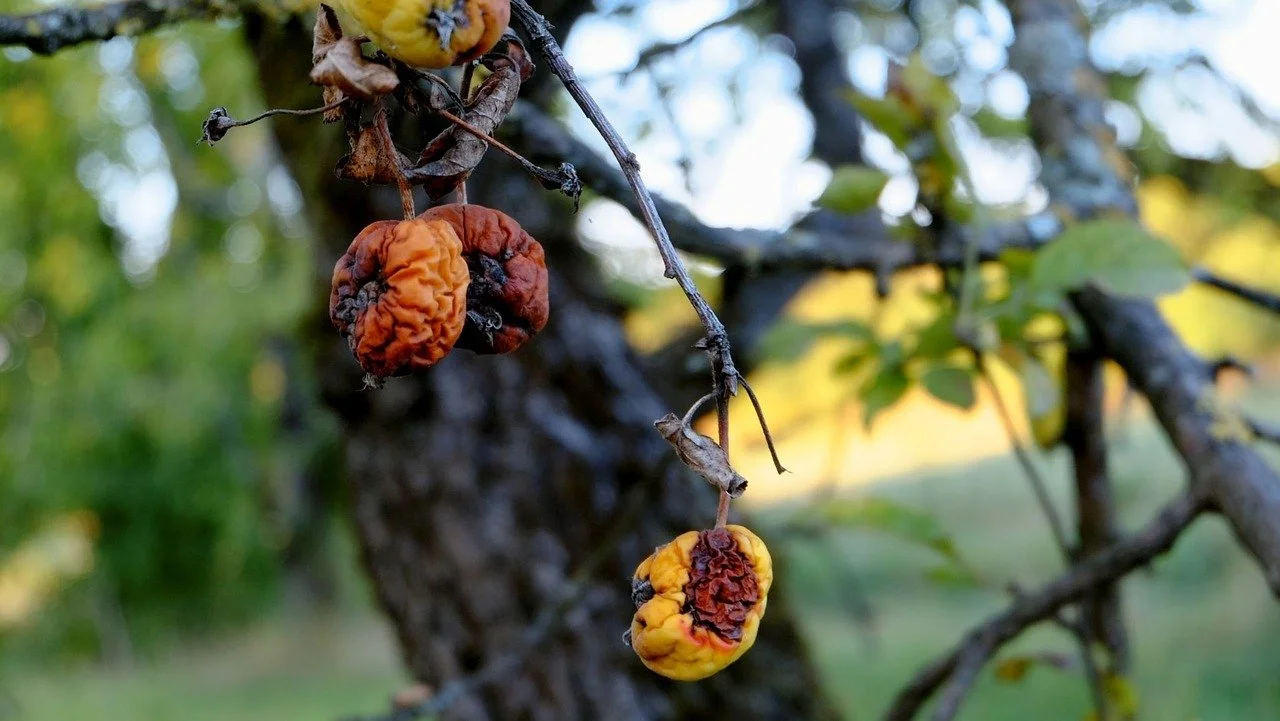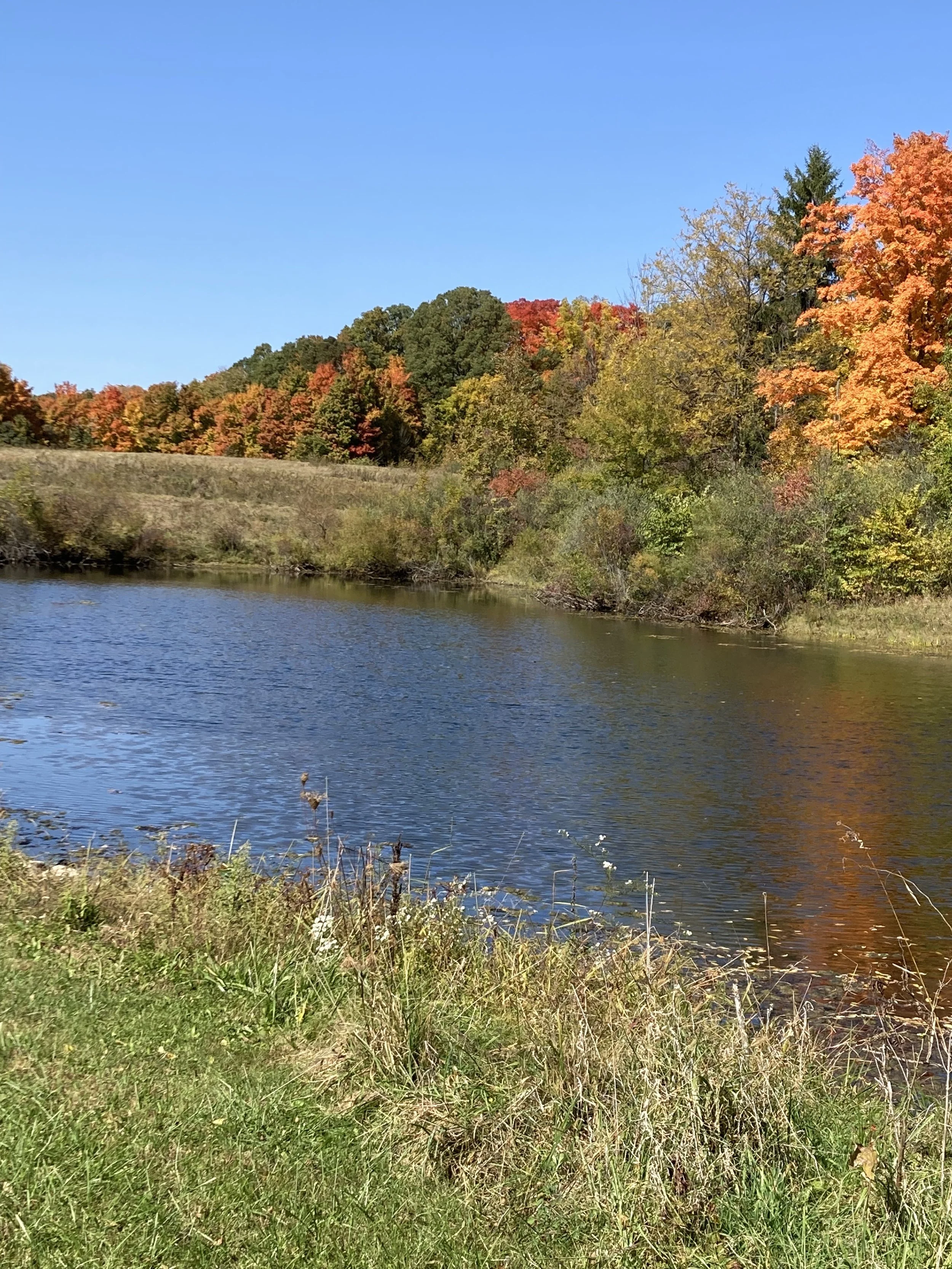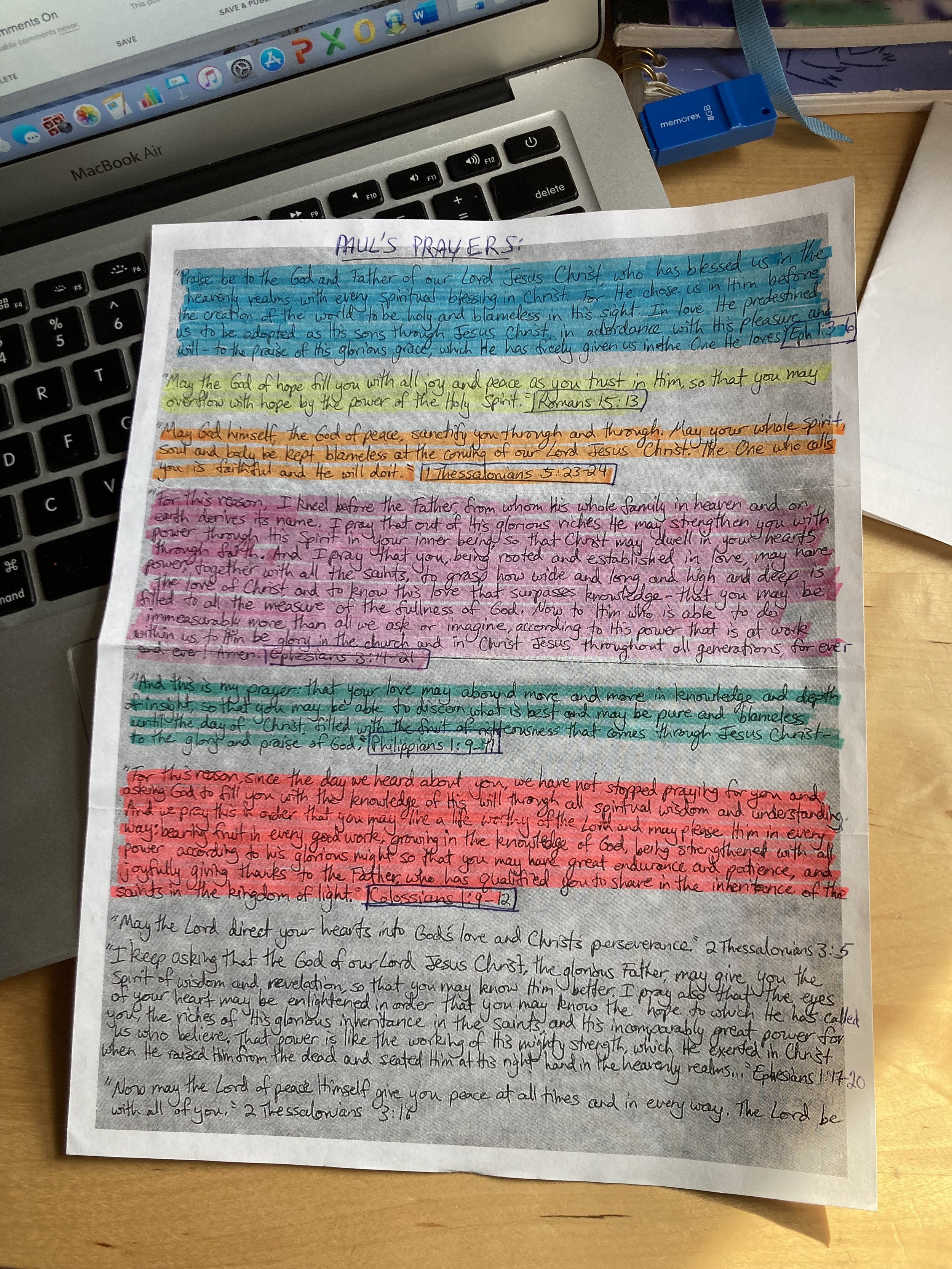A Year of Waiting - Abide
Back in January I published a post on my word for the year 2024. The word was wait. At that time I decided I was going to spend once a month looking at different words and definitions related to the word wait. This month we are going to dive into the word abide.
When I hear the word abide I think of an image like the one above. This is a fictional place where I would like to abide, or live. I want to dwell there, not just visit. To me abiding feels more cozy and desirable than the word wait, but what if you don’t like your abode? What if you would like to move to a different place to abide, but you can’t. At that point you might feel more like a prisoner than a resident.
We learn a lot about a word by looking at its definition. Webster’s Online Dictionary defines abide in this way:
- to continue in a place: sojourn (intransitive verb)
- to remain stable or fixed in a state (intransitive verb)
- to bear patiently: tolerate (transitive verb)
- to endure without yielding: withstand (transitive verb)
- to wait for; await (transitive verb)
- to accept without objection (transitive verb)
Grammar tends to drive most of us crazy, but I found the differentiation between transitive and intransitive curious. Since it has been a long while since I took an English class, I had to look at what those words meant and how that affects these meanings.
“A transitive verb is one that makes sense only if it exerts its action on an object. An intransitive verb will make sense without an object. Some verbs can be used both ways.”
Image by Christoph Partsch from Pixabay
I can say, “I abide in a house in California.” I can also say, “I cannot abide a house in California.” If I just said, “I cannot abide…” then you would have no idea what it is that I am not abiding. In the first sentence it is obvious, albeit an odd way of saying it, that I live in a house in California. You could have shortened the sentence and just said, “I abide in California.” Okay, that is enough grammar for one day. Ha, ha.
So when I use the word abide as it pertains to the idea of waiting what definition is most appropriate? Would it be odd to say, I believe all the definitions pertain. Let’s dig deeper.
One of the most familiar passages in scripture where Jesus talks about abiding is found in John 15.
“1 I am the true vine, and my Father is the vinedresser.
2 Every branch in me that does not bear fruit he takes away, and every branch that does bear fruit he prunes, that it may bear more fruit.
3 Already you are clean because of the word that I have spoken to you.
4 Abide in me, and I in you. As the branch cannot bear fruit by itself, unless it abides in the vine, neither can you, unless you abide in me.
5 I am the vine; you are the branches. Whoever abides in me and I in him, he it is that bears much fruit, for apart from me you can do nothing.
6 If anyone does not abide in me he is thrown away like a branch and withers; and the branches are gathered, thrown into the fire, and burned.
7 If you abide in me, and my words abide in you, ask whatever you wish, and it will be done for you.
8 By this my Father is glorified, that you bear much fruit and so prove to be my disciples.
9 As the Father has loved me, so have I loved you. Abide in my love.
10 If you keep my commandments, you will abide in my love, just as I have kept my Father’s commandments and abide in his love.
11 These things I have spoken to you, that my joy may be in you, and that your joy may be full.”
When Jesus says, “Abide in Me…” He is talking about continuing or sojourning in Him. Basically, when we make Christ our Lord and Savior He wants us to come live with Him. He is also saying to remain stable or fixed in Him.
Image by Jill Wellington from Pixabay
The image of a grape arbor comes to mind when Jesus is talking. The base part of a grape plant, the vine, becomes like a mini tree trunk. The branches are the long arms that extend from the vine and the part that produces the beautiful clusters of grapes. The grape clusters don’t just happen. They have to be part of the bigger vine, the part that digs down into the soil and brings nutrients to the rest of the plant. Just as the branches have to be part of the vine to grow and produce, we have to be part of Christ to bear the fruit of the His Spirit.
This is where I want to make a connection between abiding and waiting. There are seasons in life where you might feel useless, or like you are not bearing any fruit. We start to question our relationship with Christ, and maybe even doubt our salvation, but lets look back at those transitive uses of the word abide. There are times where we have to bear patiently, endure without yielding, wait for, and accept without objection.
Perhaps the whole point behind Jesus’ talk on abiding in Him was not only about bearing fruit, but about the changes that He knew we would all face living life in a fallen world. Just like the grape arbor we face all manner of storms, from wind and hail, to lightening, to torrential rains, to snow and ice. During those times we have to wait, stand firm, and sink our roots ever deeper into the good soil of our Heavenly Father. Most importantly we need to learn to accept without objecting. Our Father is a good Father, and He knows exactly what the arbor needs to produce the best fruit. During these times of waiting out the storms we can remember what Jesus said. “As the Father has love me, so I have loved you. Abide in my love.”
Finally, Jesus ends with the statement, “These things I have spoken to you, that my joy may be in you, and that your joy may be full.” Christ has made clear, by abiding in Him, not only will we bear fruit, but we will know the Father’s love and our Savior’s full joy.
If you are in a waiting time, don’t be discouraged. Look at it as the opportunity it is to abide and know your Savior even better.
Have a great weekend!





































































































